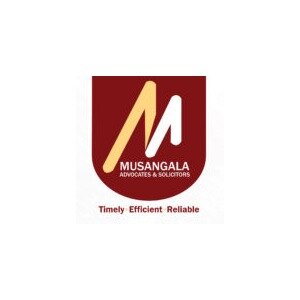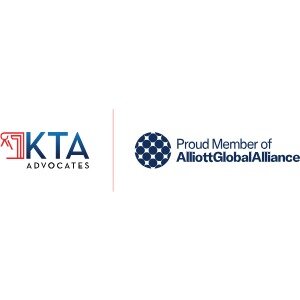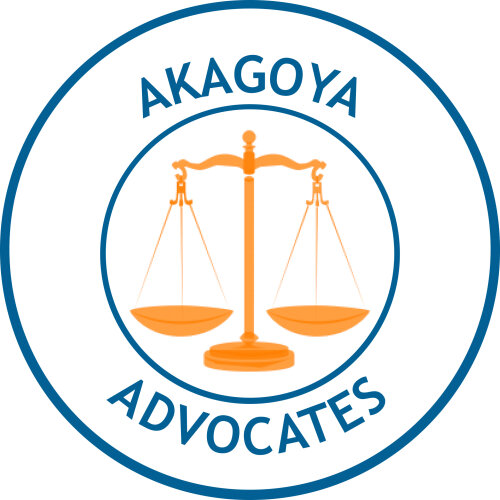Best Art & Cultural Property Law Lawyers in Kampala
Share your needs with us, get contacted by law firms.
Free. Takes 2 min.
List of the best lawyers in Kampala, Uganda
About Art & Cultural Property Law in Kampala, Uganda
Art & Cultural Property Law in Kampala, Uganda, governs the creation, ownership, transfer, and protection of art and cultural assets. Uganda is rich in cultural heritage and artworks, spanning traditional crafts to contemporary art. Therefore, legal frameworks ensure the protection, preservation, and rightful ownership of cultural property. This field of law addresses issues related to intellectual property, copyright, cultural heritage protection, and the regulation of art transactions and collections.
Why You May Need a Lawyer
There are several situations where individuals or organizations might need legal assistance in the realm of Art & Cultural Property Law:
- Dispute Resolution: Conflicts may arise over ownership, authenticity, or the value of art pieces.
- Art Transactions: Legal advice is crucial when buying, selling, or loaning artworks to ensure lawful transactions.
- Intellectual Property Rights: Artists and creators may require legal help to safeguard their intellectual property rights.
- Government Regulations: Navigating the regulations concerning the export or import of cultural goods.
- Restitution Claims: Assisting in claims for the return of culturally significant objects taken during conflicts or periods of colonization.
- Estate and Tax Planning: Legal advice may be needed for estate planning involving art collections or cultural heritage items.
Local Laws Overview
The local legal framework in Kampala, Uganda, encompasses several key aspects relevant to Art & Cultural Property Law:
- The Copyright and Neighbouring Rights Act: This law protects the copying and commercialization rights of creators of artistic works.
- The Historical Monuments Act: This act provides for the protection of places and objects of cultural or historical importance and outlines the procedures for listing and protecting these sites.
- National Museums and Monuments Policy: Sets guidelines for managing cultural heritage, including museums' collections and monuments.
- Import and Export Regulation: Legal guidelines govern the movement of cultural property across Ugandan borders to prevent illegal trafficking or export of cultural heritage.
Frequently Asked Questions
What is considered cultural property in Uganda?
Cultural property generally includes items of patrimonial importance such as traditional crafts, artworks, historic sites, and relics that hold cultural significance to Uganda's heritage.
What rights do artists have over their artworks?
Artists in Uganda have exclusive rights over their works, including reproduction, distribution, and display rights, as well as moral rights that preserve the integrity of their work.
How can I prove ownership of cultural property?
Ownership can typically be established through documentation such as purchase receipts, documentation of provenance, and, where applicable, legal titles or registration.
Can I export artworks from Uganda?
Exporting cultural goods from Uganda may require permission from relevant authorities to ensure compliance with regulations protecting national heritage.
What should I do if I find an artifact of cultural significance?
You should report the finding to the responsible local authorities or cultural heritage organizations as outlined by the applicable Ugandan laws.
How can I ensure my art transaction is lawful?
Consulting with a lawyer specializing in art law can help ensure that the transaction respects all legal obligations, including authenticity verification, proper documentation, and compliance with export regulations.
What steps are involved in the restitution of looted cultural heritage?
The restitution process often involves thorough research, legal claims, and negotiations between involved parties, usually guided by international conventions and local legal frameworks.
Are there tax implications for art ownership in Uganda?
Yes, art ownership can have specific tax implications, especially when artworks are included in an estate. Consulting a tax advisor or lawyer can provide clarity on applicable taxes.
Can public access to cultural sites be legally restricted?
Yes, access to certain cultural heritage sites can be restricted for preservation purposes, safety reasons, or due to ownership and management policies under national laws.
Who regulates the art market in Uganda?
The art market is regulated by various entities, including local government bodies responsible for cultural affairs and commercial regulators ensuring compliance with trade laws.
Additional Resources
The following resources can be helpful for those seeking further information on Art & Cultural Property Law in Uganda:
- Ministry of Tourism, Wildlife and Antiquities: For more on regulations and policies.
- Uganda National Museum: Offers information on the preservation of cultural heritage.
- Uganda Law Society: Provides access to qualified lawyers specializing in art and cultural property law.
- UNESCO Office in Kampala: Offers support on issues related to cultural heritage protection.
Next Steps
If you require legal assistance in Art & Cultural Property Law in Kampala, Uganda, consider the following steps:
- Identify your specific legal needs, whether it involves dispute resolution, intellectual property protection, or transaction advice.
- Contact a qualified lawyer who specializes in Art & Cultural Property Law. You can seek recommendations from the Uganda Law Society or consult legal directories.
- Gather all relevant documentation and information related to your legal issue to support your case or inquiry effectively.
- Stay informed about your rights and responsibilities under local laws, and actively participate in your legal processes.
Lawzana helps you find the best lawyers and law firms in Kampala through a curated and pre-screened list of qualified legal professionals. Our platform offers rankings and detailed profiles of attorneys and law firms, allowing you to compare based on practice areas, including Art & Cultural Property Law, experience, and client feedback.
Each profile includes a description of the firm's areas of practice, client reviews, team members and partners, year of establishment, spoken languages, office locations, contact information, social media presence, and any published articles or resources. Most firms on our platform speak English and are experienced in both local and international legal matters.
Get a quote from top-rated law firms in Kampala, Uganda — quickly, securely, and without unnecessary hassle.
Disclaimer:
The information provided on this page is for general informational purposes only and does not constitute legal advice. While we strive to ensure the accuracy and relevance of the content, legal information may change over time, and interpretations of the law can vary. You should always consult with a qualified legal professional for advice specific to your situation.
We disclaim all liability for actions taken or not taken based on the content of this page. If you believe any information is incorrect or outdated, please contact us, and we will review and update it where appropriate.















